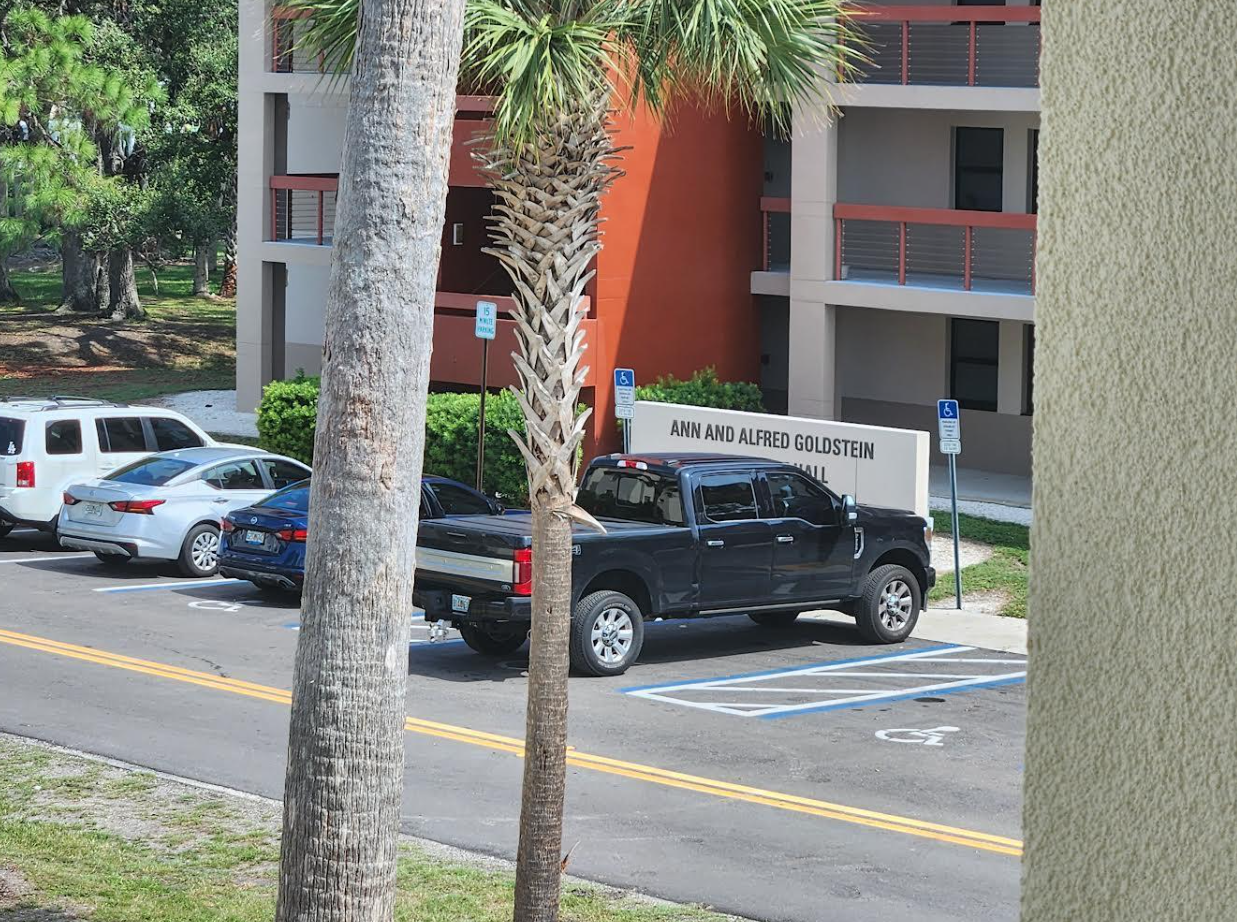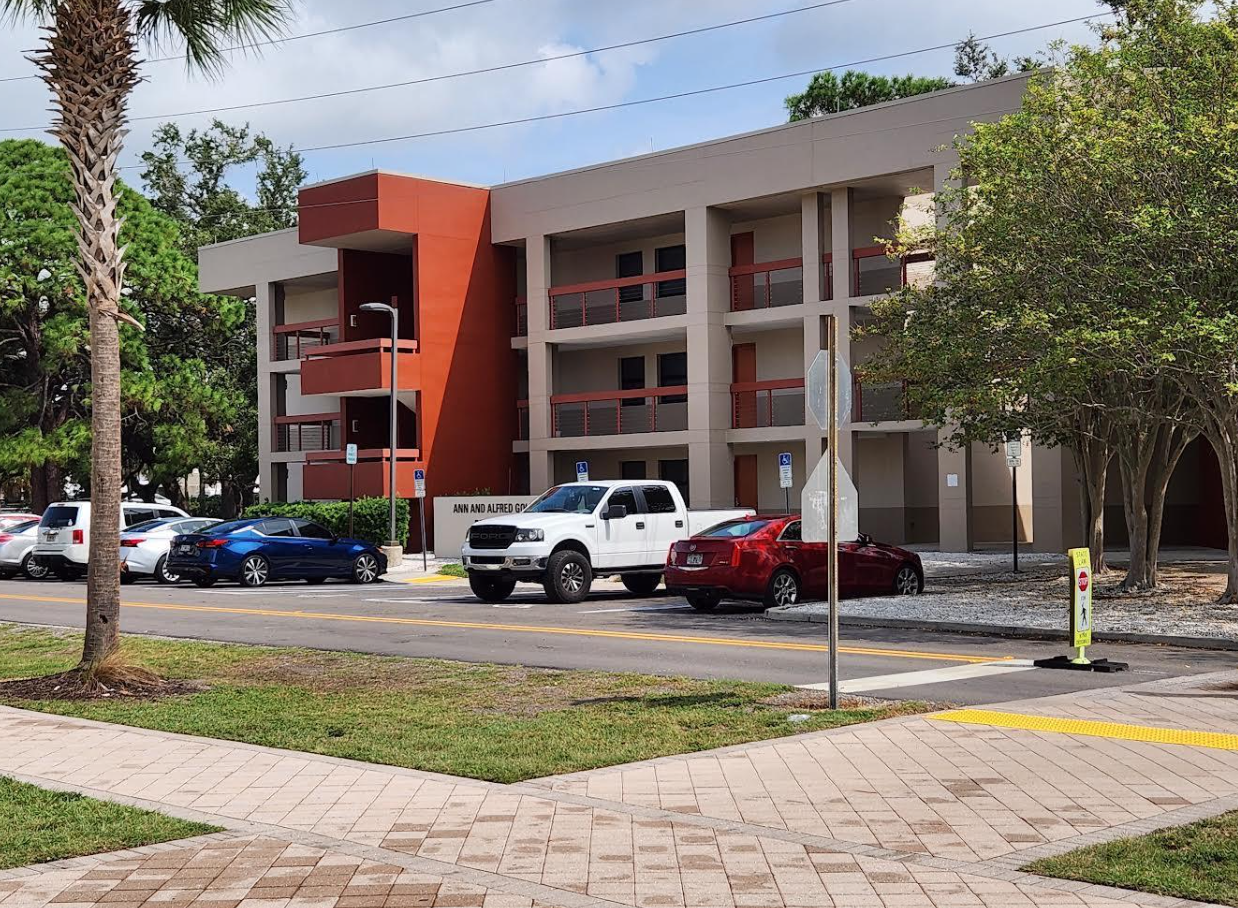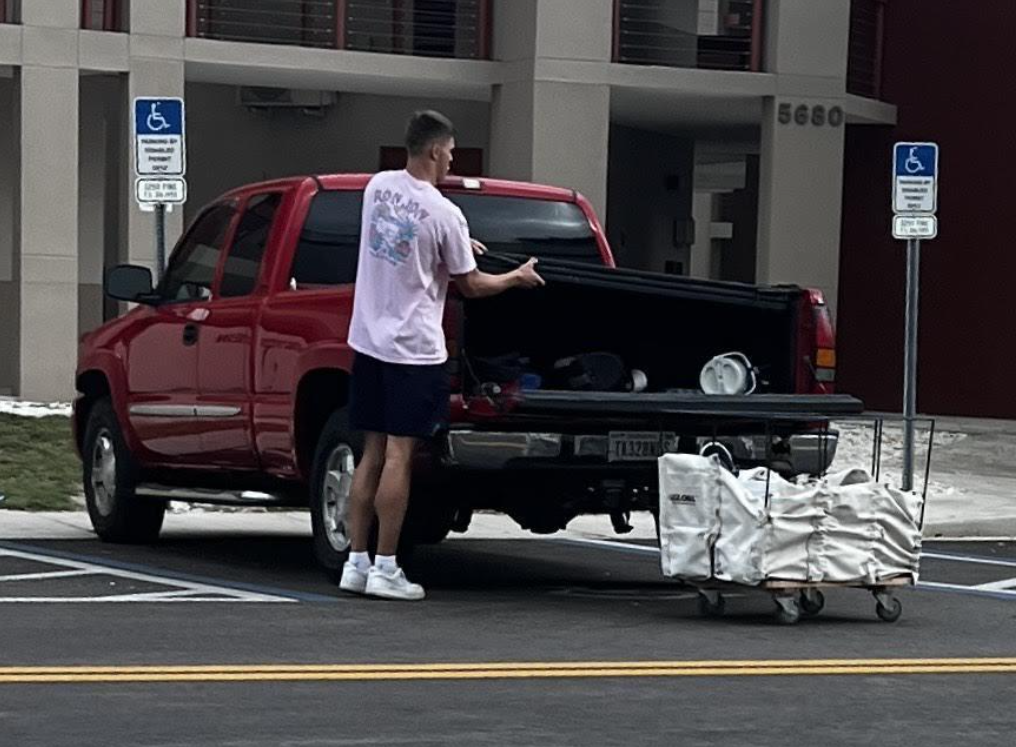Over the course of this semester, students have noticed more incidents of cars without disabled designations parked in marked disabled spaces. Normally this comes with a major fine, since there are disabled people who need these spaces. The Catalyst spoke to the New College Campus Police Department (CPD) about this occurrence.
A dispatcher at the CPD informed the Catalyst that the best way to stop this from happening is to call the campus police.
The Catalyst reached out to New College of Florida Police Captain Kelley Masten by email. Masten was unaware of the issue but was reassuring. She said that “students can contact the CPD for any traffic or parking-related complaints.”
Masten also wants students to be more educated on the subject. “CPD recommends finding a parking location that is not designated as handicap parking and/or other postings per College Policy for pickup, drop off, unloading, etc.” She drew attention to Florida State Statute 316.1955, which states:
It is unlawful for any person to stop, stand or park a vehicle within, or to obstruct, any such specially designated and marked parking space provided in accordance with s. 553.5041, unless the vehicle displays a disabled parking permit issued under s. 316.1958 or s. 320.0848 or a license plate issued under s. 320.084, s. 320.0842, s. 320.0843, or s. 320.0845, and the vehicle is transporting the person to whom the displayed permit is issued. The violation may not be dismissed for failure of the marking on the parking space to comply with s. 553.5041 if the space is in general compliance and is clearly distinguishable as a designated accessible parking space for people who have disabilities. Only a warning may be issued for unlawfully parking in a space designated for persons with disabilities if there is no above-grade sign as provided in s. 553.5041.
There are three disabled parking spaces directly in front of Goldstein Hall, as well as two spaces in front of the Fitness Center. These are designated for residents who have a hard time accessing their dorms without close proximity to the ramps.The fine normally assessed when parking in a disabled spot is a minimum of $100, but often judges will raise the fine to $250.

At New College there are fairly limited parking options and students may experience frustration with how much time is spent on finding parking. Carrying items back to their respective dorms can require more than one trip, and parking further away can be stressful.

Ariella Russin, a thesis student currently residing in the disability accommodation housing in Goldstein Hall, shared a few thoughts on this recurring issue.
“Basic thought is, it’s rude. We use the spot because my roommate is in a wheelchair, so it is easy to unload and get everything out of the car afterwards,” Russin said. “There are people who [need to] use these spots regularly.”
Russin also spoke about the importance of availability for these permitted spots.
“It is important to have disabled spots available, and I get that not everyone has visible disabilities, but [they] should go and get a pass, legally. If not, they should be fined the amount on the sign.” The amount listed is $250.”
Russin also talked about usage of the 15-minute spot, which is right next to the three disabled spots outside Goldstein.
She said that the 15-minute spot “is where [momentary parking] and loading or unloading should be taking place, but people park there throughout the day and overnight. If the 15-minute spot is always taken for hours on end, what is the point?”
Russin concluded with a comment on how this issue could be remedied.
“Well, for starters, handing out tickets. Maybe going out three times a day and checking the spots, or ticketing more frequently in this case.”
The Parking Services office is separate from the CPD and handles appeals and financial issues related to parking tickets. A Catalyst reporter visited the office located in Palmer D, and found the staff to be receptive in wanting to help fix this issue.
The Traffic and Parking Regulations page can be found on the New College website. Regulation 8(a) deserves attention here: “Any staff member or student with a disabled placard or license plate may park in the marked disabled parking spaces.” This means that only people who have legal approval to park in the space can park there.
Regulation number 12 (b) states: “Permission to operate a vehicle on campus may be revoked for a period up to twelve (12) months and the operator so notified under Parking Services under the following circumstance(s): […] The person demonstrates actions that show a willful disregard for public safety or the NCF community.” This regulation is relevant because people who park in these spaces actively are disregarding the NCF community.
Ever since the COVID-19 pandemic, parking services have operated in a different way. There used to be more staff to help with parking-related issues, and these staff would also hand out tickets. Now this is not the case, and it is up to the Campus Police to be issuing such tickets.
“We have a Community Safety Aide; his sole responsibility is items like parking issues, citations, warnings,” Masten explained “He also helps with escorts, jumpstarts, things like that and we hired him to help in alleviating some of those common instances that were happening, which were taking officers off the road for too long.” The Community Safety Aid is on duty from Monday to Friday during the day, and ticketing is usually heightened during these hours as opposed to later at night. “Other than that, every sworn member, that is an officer, sergeant, a captain, or the chief have the ability to write warnings and parking citations.”
“That being said, there are only so many of us to be at so many different locations, and sometimes we only have one officer working,” Masten continued. “That’s to cover USF campus and New College campus. We may not see it but if there is an issue like this, just call us. If we know there is a concern, it is a lot easier for us to address.”
Masten concluded with how she feels students should treat the issue:
“People need to think about one another, instead of thinking about themselves in this case. Don’t take a disabled spot away from someone who may need it.”

